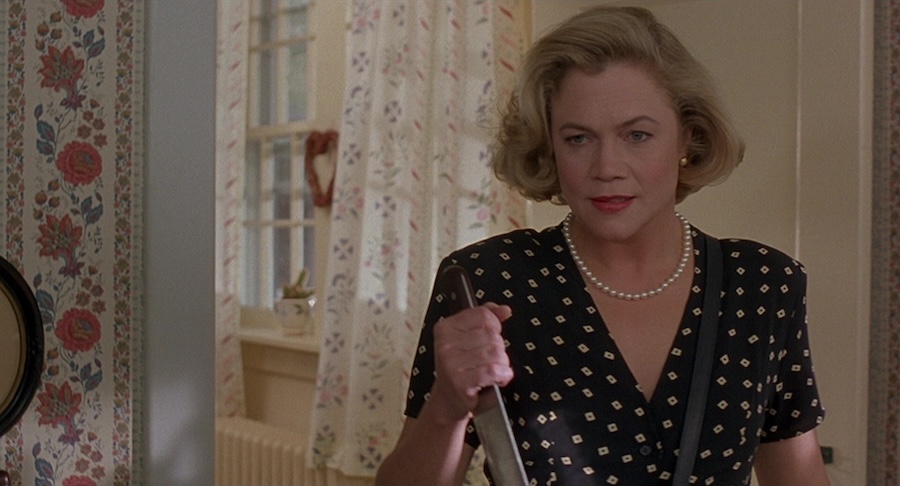John Waters’s career was predicated on shock value, so much so that his first published book was a memoir titled Shock Value: A Tasteful Book About Bad Taste. His earliest feature films—Mondo Trasho (1969), Multiple Maniacs (1970) and Pink Flamingos (1972)—were increasingly boundary-pushing exercises in gross-out theatrics, a sort of Grand Guignol for the American counterculture of the late ‘60s and early ‘70s. With his fourth feature, 1974’s Female Trouble, Waters’s fascination with true crime and the American legal system came to the fore. Two decades later, Waters returned to similar territory with Serial Mom (1994), a film that feels simultaneously inspired by Vincent Bugliosi and Curt Gentry’s best-seller Helter Skelter and ‘90s daytime talk shows like The Jerry Springer Show. While its transgressions are a far cry from the rampant nudity and perversions of Pink Flamingos and Female Trouble, which earned both films an X-rating at their time of release, Serial Mom still relies on shock. But, in the latter’s case, what’s most shocking isn’t what the audience sees, but what Waters says about society writ-large.
Serial Mom opens with a claim that it is “based on a true story.” From there on out, Waters structures the film like an R-rated TV-movie and chronicles the murderous pursuits of a convicted killer named Beverly Sutphin (Kathleen Turner). It’s all played for laughs. When Beverly kills her daughter’s boyfriend at a flea market, she walks up to her friend post-murder and slyly says, “I made a killing!” It’s all played very matter-of-factly by Waters’s cast, which includes Matthew Lillard in his screen debut, as well as Waters regulars like Ricki Lake and Sam Waterston. Waters also never shies away from obscenity or gore, but the humor in Serial Mom is far less aggressive than that featured in the first half of his career.
Waters has never been shy about his influences and Serial Mom is no different. Beverly’s children are obsessed with horror and exploitation films, referencing the work of Herschell Gordon Lewis. Even a dental patient makes reference to Marathon Man (1976). Waters isn’t really commenting on the nature of violence in the media, but on how ordinary so many murderers turn out to be. At one point, Beverly’s husband looks through her belongings and finds an audio recording that Ted Bundy (voiced by Waters) sent her from prison. This moment raises an interesting parallel since Bundy is often cited as being charming and handsome, and Beverly is considered to be an upstanding member of her community. Much of what drives her to kill are injustices or moral objections—a means to rid her life of people that she finds contemptible. Anyone who has read Waters’s books, or found themselves in attendance at one of his speaking engagements, can easily picture Beverly as a proxy for Waters himself, as both exhibit disdain for the common norms of proper society Toward the end of the film, Beverly targets a woman for wearing white after Labor Day, a fashion faux pas that she deems punishable by death. Waters, as far as we know, has not killed anyone for such a transgression, but he certainly finds humor in the concept.
Serial Mom screens Tuesday, November 18, at the Roxie, co-presented by Screen Slate and Rewind SF.




